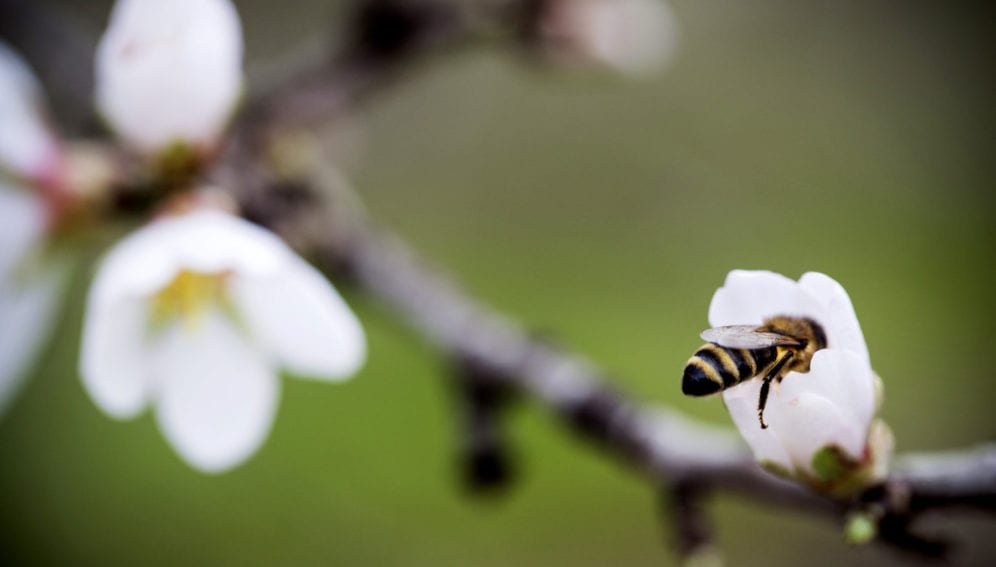By: Archita Bhatta
Send to a friend
The details you provide on this page will not be used to send unsolicited email, and will not be sold to a 3rd party. See privacy policy.
[NEW DELHI] Scientists have established a significant link between indiscriminate pesticide use and a reported decline in honeybee populations.
Exposure to intensive use of pesticides impairs both memory and the sense of smell in honeybees according to the scientists who published their study in Nature Scientific Reports on 27 July.
Specifically, the scientists found a significant decrease in the proboscis extension reflex in honeybees collected from agricultural fields that are exposed to high levels of pesticides. The study says that the lowered reflex is the result of deformed sense organs on the antennae of the insect.
“Since the antennal sensillae responsible for olfactory reception were found to be deformed in bees collected from pesticide intensive zones, the decreased proboscis extension reflex of these bees was attributed to the deformed olfactory structure of the bees,” explains Parthiba Basu, associate professor of zoology at Calcutta University and one of the authors of the study.
Basu says that anatomical deformation was not seen in bees exposed to high doses of pesticides in the laboratory leading the scientists to argue in the paper that the deformation in bees from pesticide exposed fields must have set in at the developmental stage of the insect.
The study also found biologically active free calcium ions greatly reduced in pesticide-exposed field honeybees as compared to those collected from low pesticide sites. The scientists say this interferes with the development of long-term memory and concentration, important in foraging for flower nectar.
Being key pollinators of important food crops as they move from flower to flower, honeybee health is considered vital for the world’s food supply.
The paper explains that most molecules involved in concentration, memory formation and processing depend directly or indirectly on free calcium. The study also demonstrated how the expression of the calcium handling protein Caplain 1 in honeybee brains was also found reduced by pesticide exposure.
The team of scientists from the University of Calcutta who are working on pollination ecology in India’s Orissa, West Bengal and Tripura states sampled honeybees at their field facility in Orissa. They tested the impact of organophosphate, synthetic pyrethroid and endosulfan pesticides on bee functions.
Basu says that the loss of olfactory functions, memory and concentration could go a long way in explaining the sudden decline of the species across the world.
V. Shivaram, professor of botany at Bangalore University and an expert on bees opines that pesticide overuse was just one of several causes of bee population decline. Habitat destruction, emerging bee diseases, invasive species, non-availability of food sources and global warming were among other causes.
According to Shivaram the link established between pesticides and bee decline points to a need to make inventories and document bee pollinator diversity in different ecosystems of the country, as well as the health status of bees.
>Link to paper in Nature Scientific Reports
This article has been produced by SciDev.Net's South Asia desk.
References
Chakrabarti, P. et al. Field populations of native Indian honey bees from pesticide intensive agricultural landscape show signs of impaired olfaction. Sci. Rep. 5, 12504; doi: 10.1038/srep12504 (2015).














